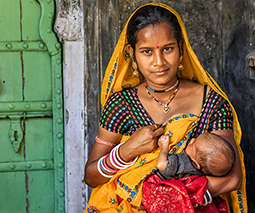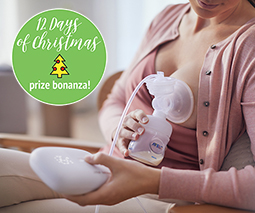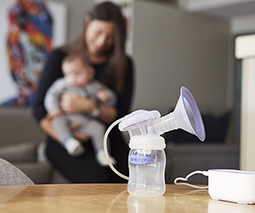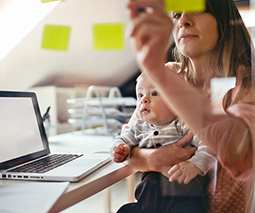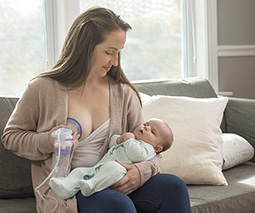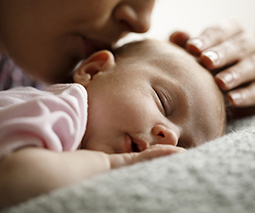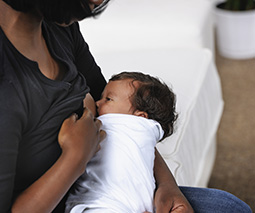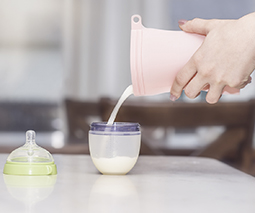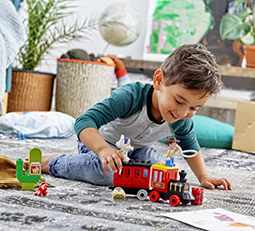Ouch! 7 ways to handle a breastfeeding bub who bites
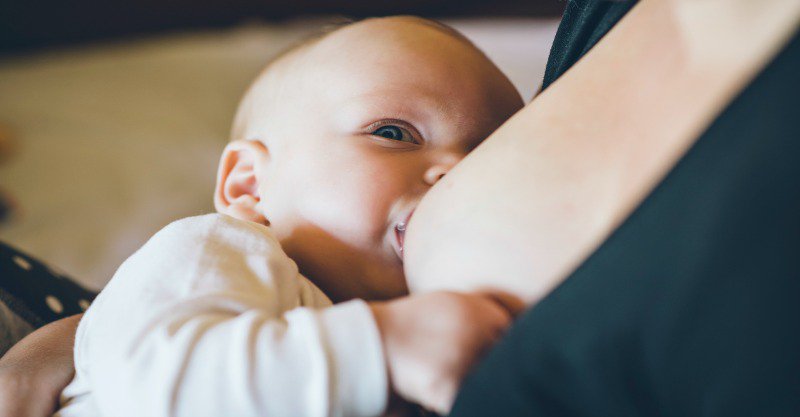
Breastfeeding can be a wonderful and fulfilling bonding experience once you’ve got the hang of it, but not so nice if your baby suddenly starts to bite the boob that feeds it. Not always an indicator they’re ready to wean, here are 7 ways to deal with a breastfeeding biter instead.
1. Help their sore teeth
Not all babies bite their mother’s breasts once they get teeth but if they do, one of the most common reasons is teething. Babies who are cutting teeth for the first time often experience pain which is relieved by biting, plus they’re experimenting too – being new to the world of teeth after all. A way around this is to help soothe their pain by rubbing their gums with ice or gel, or giving them a hard or cold teething toy to bite on prior to feeding. This can help to stop them chewing on your nipples instead.
2. Get your milk flow ready
Some babies bite because your milk isn’t coming fast enough for them and they’re impatient and hungry. If this is happening to you, try expressing a bit before your next feed to encourage a let-down reflex so your milk will flow faster. You could also try talking or singing to your baby to hold their attention while they’re waiting for the milk to come.

If you’ve got a biter, best to put the phone down when breastfeeding
3. Give them your attention
Once you’ve been breastfeeding for a while it can be tempting to do other things at the same time (women being the great multitaskers that we are). Babies can get very annoyed by this, especially if you’re talking to someone else, and they will often bite you to get your attention and bring your focus back on them. If you’re distracted you’re also less likely to realise if your baby hasn’t latched on properly to begin with, or when your baby has had enough and is playing around – other common reasons for biting. When in a correct, active feeding position they will not actually be able to bite you as their tongue rests over their bottom gums and teeth. So if you have a biter, put the phone down and give them your full attention instead to ensure they’ve started their feed properly. And remember to take them off gently at the end when you can tell they’re not wanting to feed anymore and have moved mouth positions.
4. Feed away from distractions
Similar to when you’re distracted, if your baby’s attention is being pulled elsewhere (such as by other people or noises like the TV) then they are less likely to feed properly which could lead to them playing and biting instead. Try going in to a quiet room by yourself with no other noises or distractions, and your baby is more likely to have a full feed properly without biting and come off easily when they’re done.
5. Let them know it’s not okay
It can be a natural reflex to cry out loudly when your baby bites you (their tiny teeth being incredibly sharp after all!), however this can greatly frighten or upset your baby. It can also have another effect which is to make them laugh and think it’s a great game that they want to keep playing. The best approach if they are biting is to pull them off straight away and gently but firmly say ‘no.’ This will teach them to stop doing it. Some people may tell you to bite your baby back, however this is not a good idea and can actually hurt your little one. Also be aware of when their feeding starts to slow and a cheeky look comes over them, as they might be getting ready to bite in which case remove them before they get the chance.
6. Remember it’s a phase
Some believe that biting is a sign a baby is ready to wean and you should stop breastfeeding. This is not always the case, and is usually just a phase brought on by teething or some of the other reasons mentioned above. Many mothers successfully continue breastfeeding after a short period of biting from their baby, so hang in there it will pass and you can continue as long as you or your baby wants to.
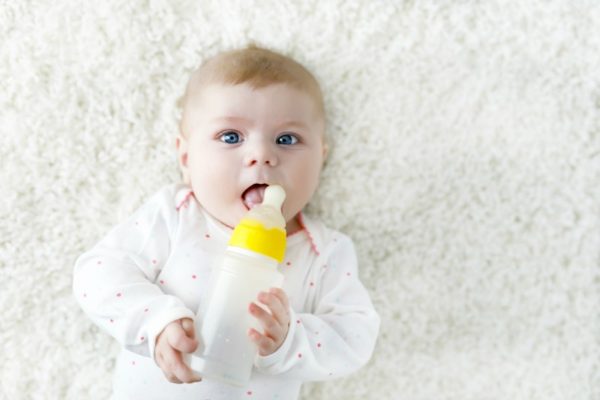
You might need to give an expressed milk bottle for a while
7. Care for your nipples
Breastfeeding bites can be incredibly painful and in a lot of cases draw blood. Similar to when you start feeding and your nipples are cracked and bleeding, the best ways to treat sore breasts and nipples is to smear a little breast milk on the area, expose the area to fresh air and change breast pads frequently. In extreme cases you may need to visit your doctor or try expressing milk for a little while and bottle feeding your child until your breasts have healed and your baby is no longer biting.
Does your baby bite when on the breast? How are you handling it?
